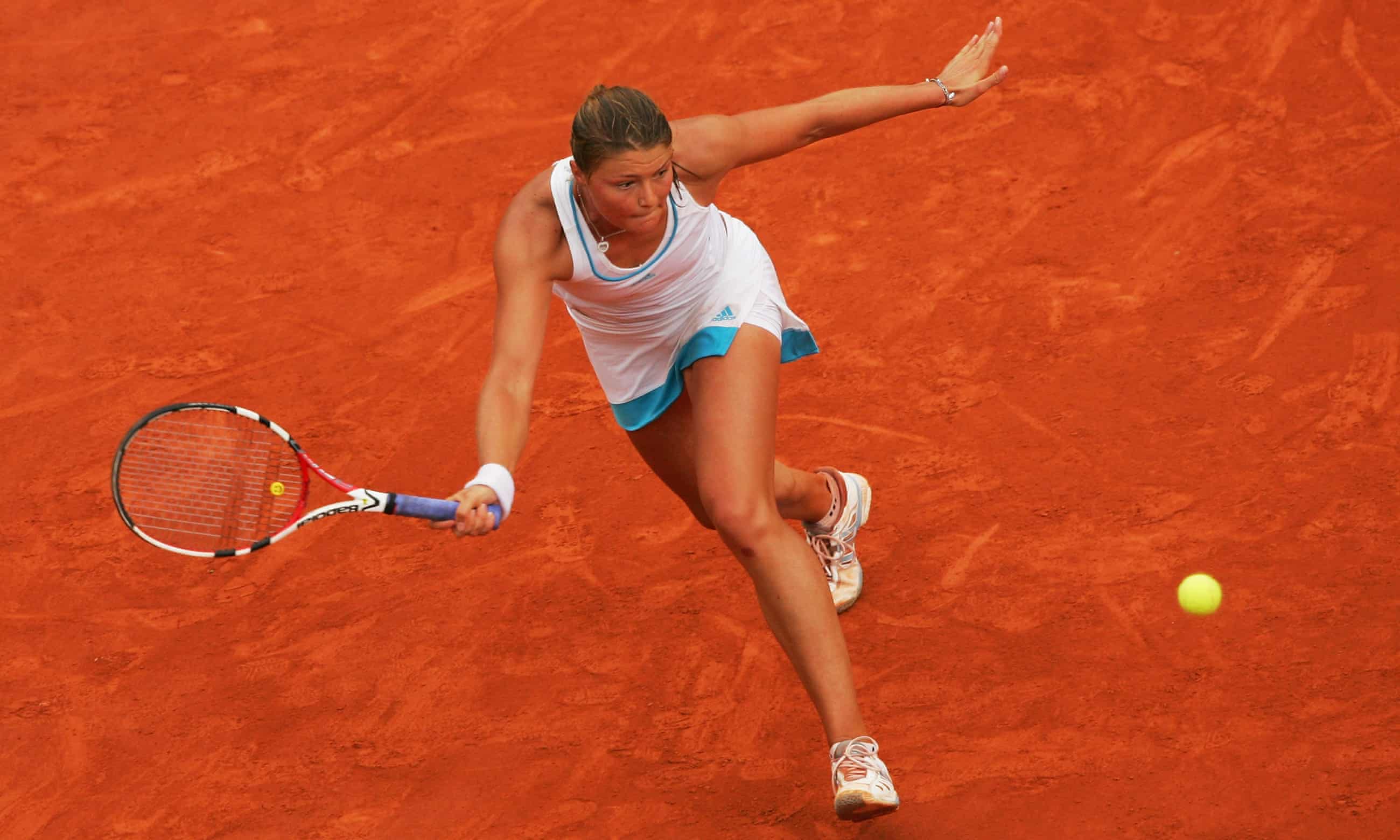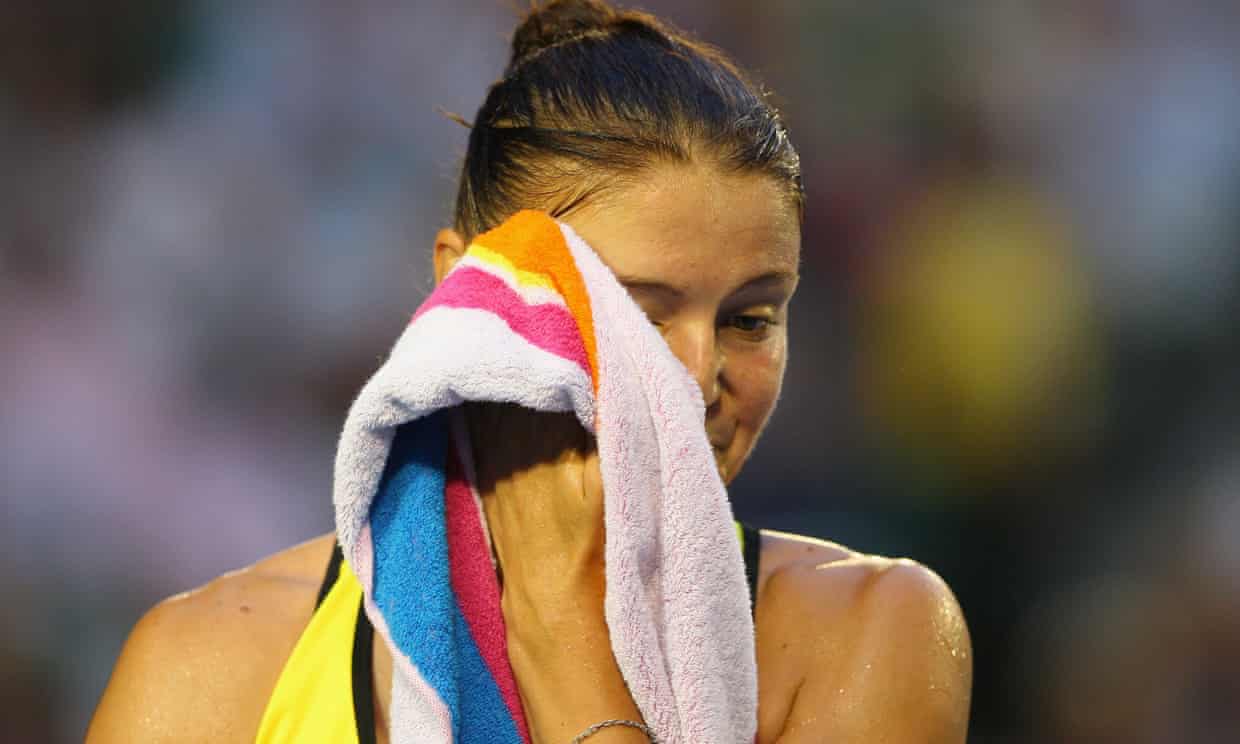
Tennis
Dinara Safina: 'Being world No 1 is not fun, it is the opposite'
The Russian won 12 titles and Olympic silver, but she came to take everything in her career so seriously that the pressure suffocated her
by Tumaini CarayolThe oldest Dinara Safina press conference archived on the internet dates back to 2003. Safina was 16 years old, ranked 63rd in the world and she had just defeated Anna Kournikova, the most famous Russian player across the lands. As usual, many questions were about people other than Safina; about Kournikova, her mother, her superstar brother. Finally, somebody wondered what she actually wanted from her own career. “The sport life is so short,” she replied. “I just want to enjoy it and don’t get injured.”
Safina went on to have an enviable career. She won 12 titles, Olympic silver and reached No 1. She bullied top players with her brutal weight of shot, reaching three grand slam finals. Even though she never won Roland Garros, she is one of the best clay-court players of the 21st century.
It has been nine years since Safina, now 33 and retired, last competed and she is locked down in Moscow. It takes just one question – about whether she would return to the sport if not for the stress fractures in her back – to understand that for everything she did, she never actually managed to reach either of those simple goals she set years ago.
“If I would be able to start from the beginning of my career, maybe, but I don’t feel like coming back to the tour. It’s something that I guess is very deep. I think I got disappointed in some way by tennis, because I dreamed that once you become really famous, you become No 1 in the world, you would have a different life. But once you have this, everything, and you realise that it’s not what you’ve been dreaming of, then all your dreams fall apart.”
Safina grew up training in Valencia as her brother, Marat Safin, ascended to No 1 in 2000. Despite his two major titles, Safin’s discipline never matched his talent. Fans lined the stadiums for his charisma, looks and famed self‑destructions as much as his tennis. Safina was different. Her discipline drove her success as she became a supreme athlete, but she always directed her frustrations inwards. While he would break racquets, she would break down.
This is where her disappointment lies – she came to take everything in her career so seriously that the pressure was suffocating and her joy was lost: “I couldn’t handle my emotions and all these things, and for me that’s why it was tough.”
The rise itself was thrilling. Safina announced herself to the world in the spring of 2008, beating both Justine Henin and Serena Williams to win a breakthrough title in Berlin. Within a year she was No 1 and dominant on clay, but the more Safina’s ranking rose the more she would play the biggest moments in a state of perpetual torment, on the verge of tears, unable to cope.
“I always had a dream to be famous, No 1 and all this, but then suddenly I felt so much pressure being there. I didn’t expect that I would have this pressure. I thought it was going to be fun, you know? You become famous, you become No 1. And everybody is happy. It’s actually the opposite! Everybody wants to beat you.”

In the 2009 Australian Open final, she froze and was eviscerated 6-0 6-3 by Williams. She collapsed under pressure in the Roland Garros final against Svetlana Kuznetsova, infamously serving a double-fault on match point. By Wimbledon, she was the No 1 player in the world yet Serena held three grand slam titles. She became the butt of every joke.
“Of course, you hear every day the same questions in every interview: ‘When are you going to win your first grand slam?’ And I’m like: ‘You think I don’t want to win a grand slam?’ And then I started to struggle with this because it’s something that was really annoying for me and it was very painful because it’s something that I really wanted to win.”
There was no chance for the redemption achieved by the likes of Simona Halep, Caroline Wozniacki and Kim Clijsters. By 2010 her back pain felt “like somebody stabbed a knife in your back”. As she continually rehabbed for a return, just the thought of stepping on to the court became a source of trauma. She quickly learned that no longer competing was also a relief for her mental health. “It was so deep in my mind, because phew... I just couldn’t go back again to feel this pain. I had enough of this pain and I think another thing [was] that, finally, I could step away from all the pressure I had.”
When your whole life is tennis, hotels and travelling the world every week, stopping abruptly can have a huge impact. “[Retirement] was different. Completely different, which I was also not ready for. I guess it’s my journey in life. I take it always with philosophy, I don’t start to make a drama out of it. Well, that’s my journey, anyway we only have one life. And that’s it. So why not try everything?”
Safina sees her future in the player box rather than on the court. She cannot wait to fly back to Valencia and work as a coach. She may not have been able to enjoy herself at the top of the sport, nor to stay healthy, but the emotional intelligence and self-awareness she displays as she talks in her third language will carry her a long way. Perhaps it can help.
“For all the experiences that I went through while I was struggling, I don’t want players that I coach to feel like that. I want them to understand that tennis is a beautiful life. It’s a beautiful sport. It’s so much joy and even the hard work should be a joy. Tennis is not a struggle. It’s fun and it’s a short period of life. I don’t want to go back for my perspective myself because I know that I’m going to be the same – taking it too seriously and crying.” Then she laughed. “I want to teach the players not to make the same mistakes I’ve made.”